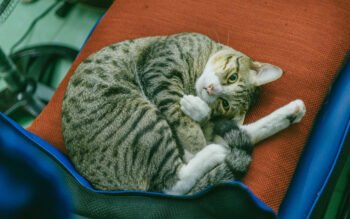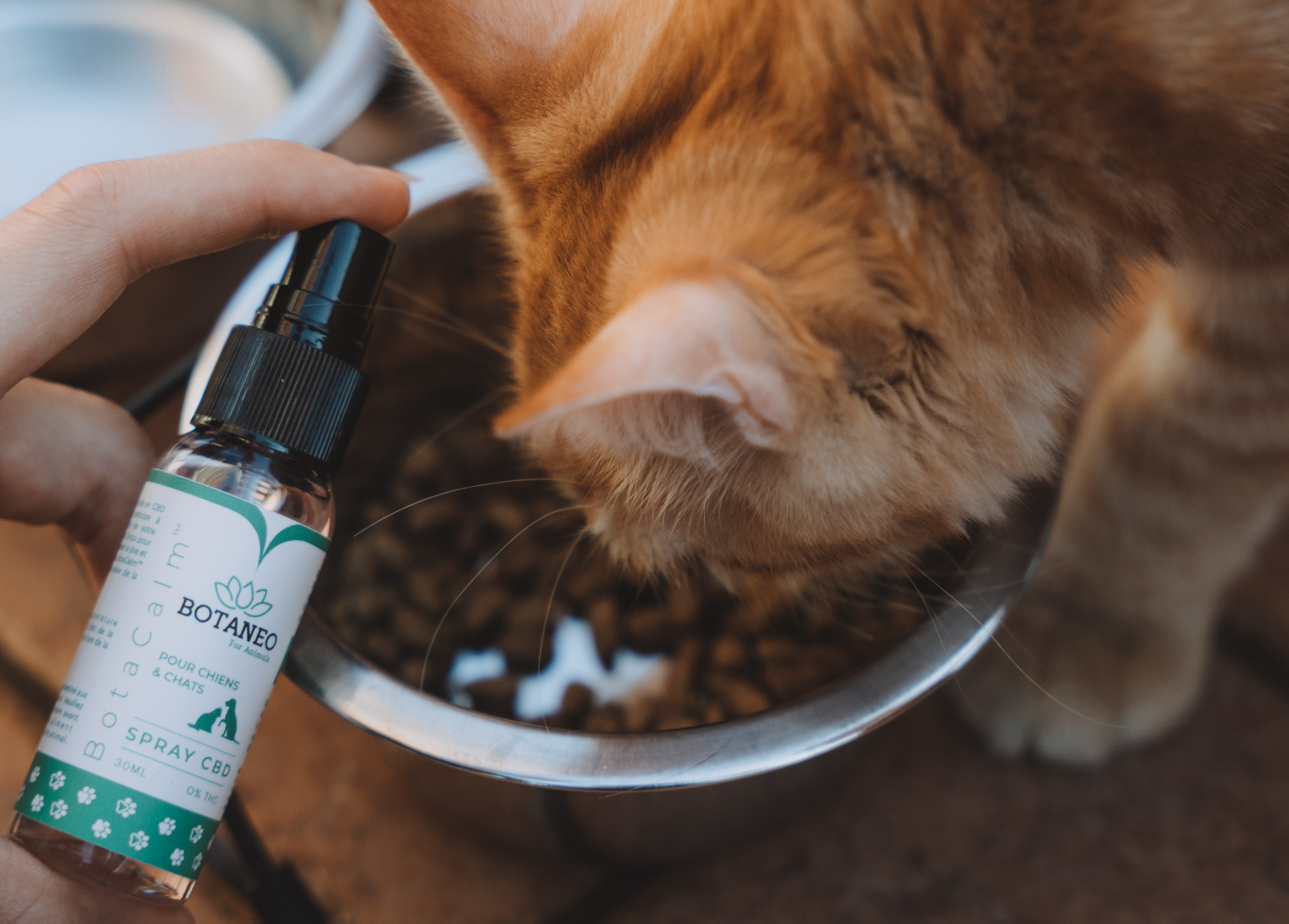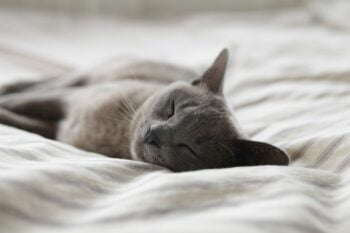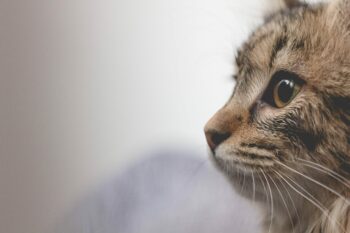Your cat may jump on the faucet when you turn it on or cry to play with you at midnight. But if you think your pet’s life always revolves around you, think again. Its antics are actually a part of natural feline behavior, which evolved to permit cat survival in the wild.
To help you better understand your cat, certified cat behavior consultant Marilyn Krieger explains some typical scenarios that may take place in your household on a daily basis.
Good Morning
7 a.m. Hearing your bedroom door creak open, your cat hides in its preferred spot, ready to take a swipe at your passing feet — again.
If your cat attacks any part of your body, it could be a sign of boredom, explains Krieger, owner of TheCatCoach Web site. What’s more, if you use hands or feet at playtime, you may be encouraging kitty to attack you.
Expert tip: Enhance your cat’s environment with more toys and treat balls, and establish a regular play schedule. Don’t interact with the cat when it attacks. Instead, toss a toy into the air to divert your pet’s attention.
9 a.m. Normally you’d be out the door half an hour ago, but kitty is busy rubbing its head against your shoes.
Kitty has the best intentions: Cats have scent glands on the cheeks and face, and this is one way of spreading their friendly pheromones, explains Krieger. Your cat’s scent on your shoes is a sign that your pet is missing you already.
After Work
5 p.m. Perched on the windowsill, your cat doesn’t notice you returning from work. Kitty is peering intensely outside and chattering its teeth.
Before a cat bites small rodents’ necks to kill them quickly in the wild, it may make a distinct chattering noise. At home, your house cat displays excitement at the sight of prey in this same chattering manner. “It’s a predatory thing, a rush of adrenaline,” explains Krieger.
7 p.m. At the sight of you refilling its water bowl, kitty leaps onto the counter and helps itself to a fresh sip from the faucet.
Cats like cleanliness, and the motion of water appeals to their sense of smell, sight and sound, says Krieger. Water directly from the source is therefore much more refreshing than the “stale” kind.
Expert tip: An automatic water fountain offers running water to your cat at all times. But if you must use bowls, choose stainless steel or ceramic instead of plastic, since bacteria clings to the latter.
8 p.m. After dinner, kitty scratches around the floor outside its litter box.
Krieger stresses that this has to do with litter box maintenance. If your cat spends more time outside the box than inside, it is trying to avoid the problem on the inside.
Expert tip: Rethink the litter texture, smell, cleanliness or location of the box. Scoop litter clean daily and change it often.
Bedtime … Almost!
9 p.m. Purring in your lap during the after-dinner cuddle, kitty looks at you and slowly blinks its eyes.
“This is a very loving reaction, a friendly gesture,” explains Krieger. Your cat has reached utmost contentment and is communicating its deep affection for you.
Expert tip: Respond to your cat by blinking slowly too, which will make your pet feel secure that its sentiments are returned.
10 p.m. It’s bedtime! But for who? Kitty won’t stop meowing!
Some cats are naturally “talkative.” Others communicate physical discomfort this way. First, you want to make sure the veterinarian checks your cat to make sure there’s nothing medically wrong. Thyroid conditions and other health issues can cause excessive meowing. Other possible reasons may include hunger and loneliness.
Expert tip: Don’t encourage your cat to negotiate with you. “Sometimes, owners reinforce the behavior by talking to the cat,” says Krieger. Instead, try enriching its environment to solve the problem. Leave toys out at night and invest in a timed feeder to help combat feline late-night munchies.
12 a.m. There’s no better time for playtime … but your bedroom door is closed. Oh, well, kitty will just have to keep scratching till you come out of hiding.
The wee hours of the morning are a prime hunting time for cats in the wild. Since your cat snoozes while you work all day, it’s no surprise that kitty’s energy is brimming when you’re drained.
Expert tip: A brief yet high-powered play session before bed should do the trick. Let kitty chase and capture feather toys to work off the excess energy.
“Cats can get accustomed to your schedule as long as you don’t reinforce bad behaviors,” says Krieger. Understanding your cat’s perspective is the first step to getting your schedules to match. But don’t try to change your cat completely: After all, you can take the cat out of the wild, but you can’t take the wild out of your cat.







